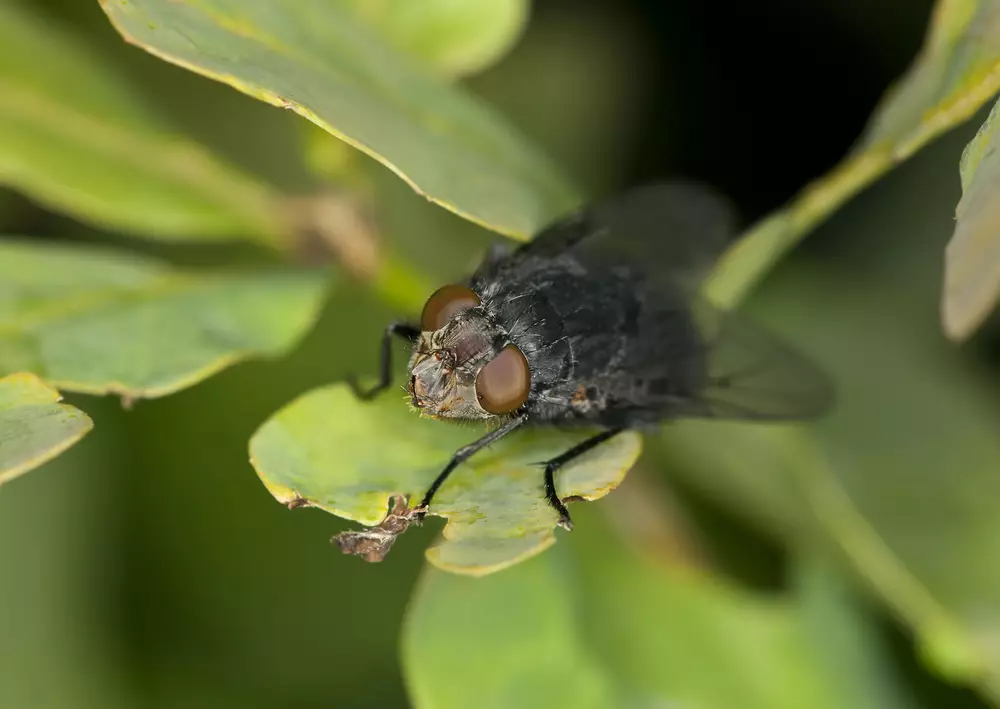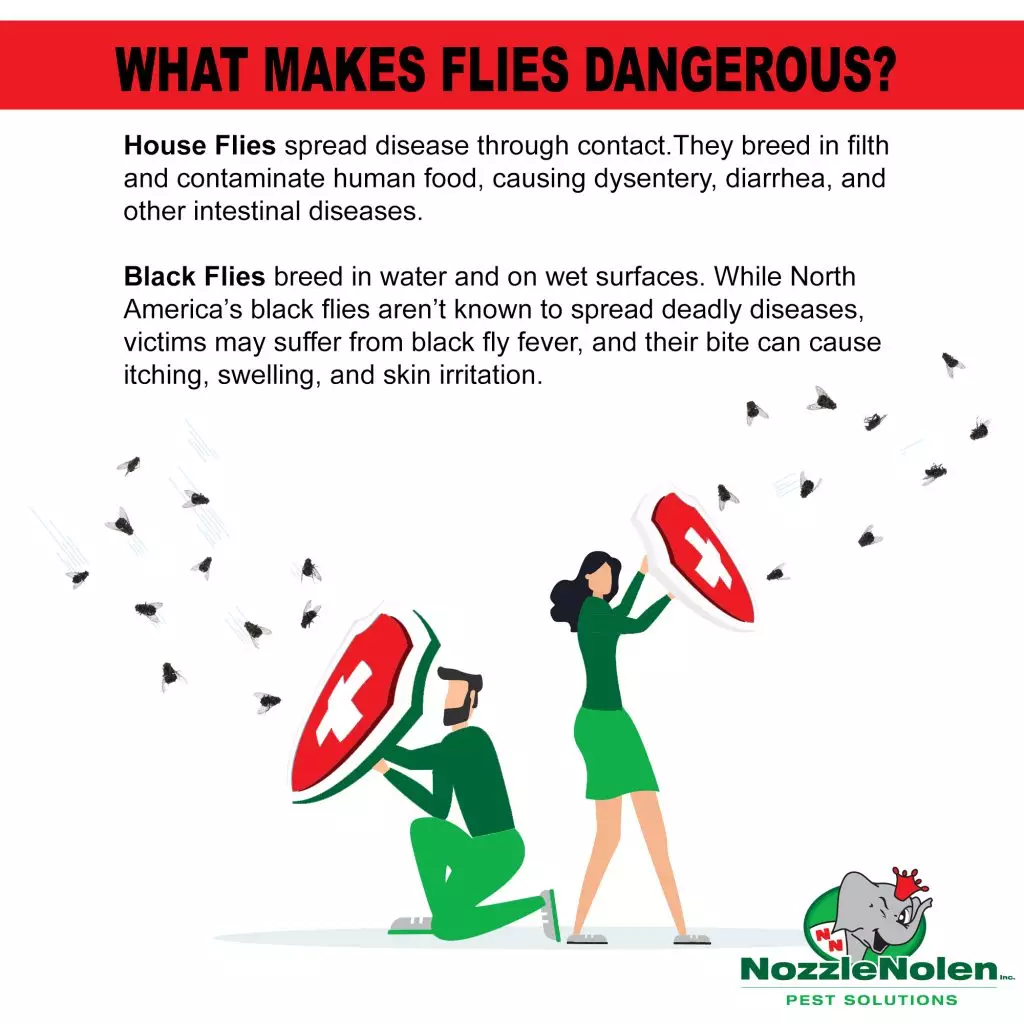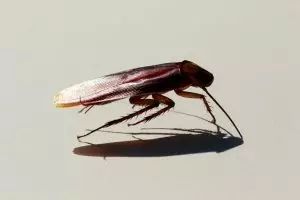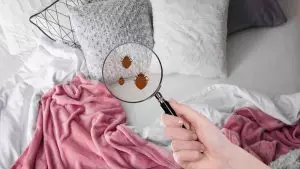
Nothing will spoil a backyard barbecue or other South Florida outdoor activities faster than a swarm of biting black flies. These pests are often mistaken for non-biting house flies or other species, but when they make themselves at home in your yard, their presence will soon be felt—literally.
Female black flies take blood meals before laying between 200 and 500 eggs, typically in flowing water but also on wet surfaces. In most cases, the eggs hatch within days or weeks and pass through the larval stage in 1 to 6 months, depending on food supply, water temperature, and other factors. They enter the pupal stage in spring or summer and emerge as adults a few days later.
That’s when the hungry females start looking for their next blood meal, leaving a bite that can leave the victim itching for days and even weeks. In extreme (though rare) cases, a black fly bite can lead to an illness called black fly fever, which causes headaches, fever, nausea, and swollen glands.
If you’re wondering how to get rid of black flies in your yard, you’ll find the answers you need by contacting the pest control specialists at Nozzle Nolen, a company with more than 70 years of experience protecting South Florida homes and businesses from biting insects and other pests.

What Makes Black Flies Dangerous
Black flies and the common house fly differ in many significant ways:
- House flies pose a threat of spreading disease through contact. They breed in filth and contaminate human food, causing dysentery, diarrhea, and other intestinal diseases.
- Black flies breed in water and on wet surfaces, and while the species present in North America aren’t known to spread deadly diseases, victims may suffer from black fly fever, and their bite can cause significant itching, swelling, and skin irritation.
Black flies are known as “true flies” (Order Diptera). While many of these flies are beneficial to humans by pollinating flowering plants and feeding on other garden and horticulture pests, they can also infect plants and animals with deadly diseases. For example, black flies pose a serious threat to livestock.
Distinguishing black flies from other types can be challenging. Black flies measure about one-eighth-inch in length and have a hump-back, which is why they are sometimes called “buffalo gnats” or “turkey gnats.” They have two large, fan-shaped wings and short antennae. Not all species of black flies bite humans, but some types that don’t bite will still swarm around your head and may crawl into your ears, eyes, nose, or mouth.
No matter the type, black flies are unwelcome in our yards, disturbing outdoor gatherings at home and while we’re fishing, boating, or hiking.
How to Get Rid of Black Flies in Your Yard
The primary breeding spot for black flies is anywhere with running water, such as rivers and lakes. The larvae attach to underwater rocks, driftwood, and submerged concrete, such as that found in shipping channels and dams. Even if you reside far from their favored wet environment, black flies can find you because they can fly as far as 7 to 10 miles from their place of origin.
Most efforts to control black flies focus on eliminating them at the larval stages, either by aerial application of an insecticide or by altering their habitat. Unfortunately, most such efforts work only for a short time because female black flies can fly so far from where they developed as larvae. While black flies are most prevalent in Florida in the early to late spring, they can be a problem year-round.
Advice for avoiding black fly bites includes wearing baggy, light-colored clothing with long sleeves, avoiding the perfumes and sweet drinks that attract the flies, and wearing a hat with netting to protect your face, neck, and head. None of these solutions will go over well in sunny, warm, and fashion-conscious South Florida, however. So that leaves prevention as the most effective long-term approach.
The best way to eliminate the threat of black flies is by adopting a prevention-first approach that addresses all types of pests that may invade your home, including mosquitoes, ants, termites, cockroaches, and rodents. A pest-prevention regimen such as Nozzle Nolen’s 365 Complete Home Protection Plan addresses any existing pest problems and guarantees that your home will remain pest-free no matter the season.
- The company’s integrated pest management (IPM) approach identifies and monitors pest populations.
- It sets the thresholds for taking action when pests become a problem in your yard or residence.
- It removes all potential pest habitats and attractions, such as sources of food and water and possible nesting sites.
- It uses the most appropriate, environmentally-friendly methods of removing the pests.
Controlling black flies is one of the goals of Nozzle Nolen’s Green Medal Pro year-round lawn care services that eliminates the insects, diseases, fungi, and weeds that can spoil our beautiful South Florida landscaping. The program ensures that the right type and amount of fertilizer is applied for each season. Our technicians are trained to spot the subtle signs of distress on shrubs, plants, palms, and other trees.
Getting Started With Nozzle Nolen
Don’t let black flies or any other pests interrupt your next backyard barbecue or other outdoor activities. Contact the trained and certified pest control specialists at Nozzle Nolen to learn more about how their lawn care services can help you enjoy all the benefits of South Florida living the whole year long.
Nozzle Nolen has helped residents and business owners in South Florida keep their lawns healthy and beautiful for more than 70 years. If you have more questions about how to get rid of black flies in your yard, give us a call at 800.226.6536 or Contact Us for more information about our Green Medal Pro lawn care program.

